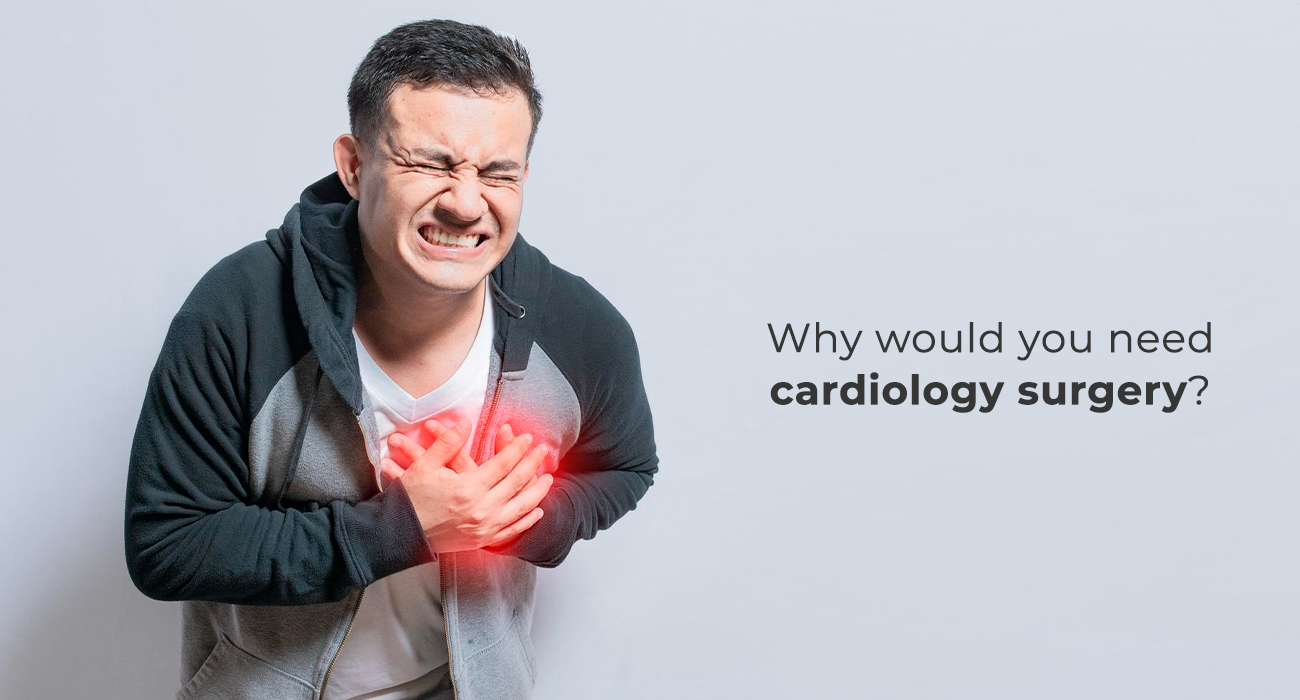Why Would You Need Cardiology Surgery?
09/07/2023
With so many advancements and innovations coming forth every now and then, cardiology surgery stands as a hope for individuals diagnosed with complex heart conditions. While non-invasive treatments often take the forefront, there are situations where surgery becomes a necessity to restore health, enhance the quality of life, and prevent further complications. Surgery is usually reserved as an option for those who stop responding to conservative treatments. Here is a list of some common conditions that may call for the need for surgery, as listed by the experts from the best Cardiology Surgery Hospital in Jaipur.
-
Coronary Artery Disease (CAD) and Bypass Surgery: Plaque accumulation causes the arteries supplying blood to the heart to narrow and become clogged, resulting in a condition known as coronary artery disease (CAD). This can lead to symptoms like breathlessness, chest pain & fatigue, and even serious complications like heart attacks. In situations where lifestyle modifications and medicines are insufficient, bypass surgery may be suggested. By creating new routes around the clogged arteries, a surgeon can restore blood flow to the heart during this treatment. Bypass surgery can improve heart function, reduce symptoms, and improve general quality of life by restoring blood flow.
-
Heart Valve Disease: The proper working of all 4 valves of the heart i.e. Ticuspid valve, Pulmonary valve, Mitral valve and Aortic valve, is crucial for its optimal functioning and ensuring the normal circulation of blood. However, infections, birth abnormalities, or ageing-related wear can damage the valves and prevent them from opening or closing properly. Heart valve disease is an umbrella term used for all such conditions. These can disrupt blood flow and put undue pressure on the heart. Heart valve surgery often becomes necessary in such situations, especially when the patient is not responding to medication. The aim of the surgery is to repair or replace the affected valve.
-
Aneurysm: An aneurysm is a bulge in a blood vessel, often caused by weakened vessel walls. When an aneurysm occurs in the aorta (the main artery carrying blood from the heart), it can pose a life-threatening risk if it ruptures. Cardiology surgery becomes necessary to repair the aneurysm and prevent catastrophic bleeding. Early detection and intervention are crucial in managing this condition, as without proper treatment it can give rise to life-threatening complications.
-
Congenital Heart Defects: Listed as one of the most common types of congenital defects CHDs are structural and functional abnormalities of the heart. These vary from mild to severe depending on which different babies need different medical approaches. The goal of cardiology surgery is to fix severe congenital heart problems and restore normal cardiac function. Nearly 1 out of every 4 babies born with congenital heart defects needs surgery.
-
Heart Failure: Heart failure occurs when the heart is unable to pump blood efficiently to meet the body's demands. While medications and lifestyle changes are primary treatments, advanced cases may require surgical options. Ventricular assist devices (VADs) can help the heart pump blood effectively, and in severe cases, heart transplantation might be the only viable solution. These surgeries offer a chance at extended life and improved heart function for those with end-stage heart failure.
-
Arrhythmia: The condition is marked by irregular heart rhythms that can lead to complications such as stroke, fainting, or heart failure. In some cases, surgery may be recommended to correct the underlying issue. Procedures like catheter ablation use radiofrequency energy to destroy the tissue causing the abnormal rhythm, restoring the heart's natural rhythm, and reducing the risk of related complications.
When other therapies are not enough to treat severe cardiac diseases, cardiology surgery becomes necessary. Experts thoroughly evaluate the patients to determine if surgery is the best option for them, and only then recommend it. Medical guidance and discussion in important before any decision-making for a cardiology surgery.

